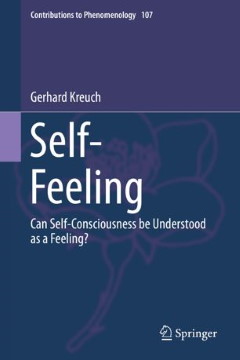Repository | Book | Chapter

(2019) Self-feeling, Dordrecht, Springer.
This chapter presents and discusses Ratcliffe's theory of existential feelings as the most elaborate contemporary attempt to philosophically address fundamental human affectivity. Existential feelings have two features: First, they are bodily. Second, they shape our space of possibilities. In the context of this book one thing is crucial about existential feelings: They are both a pre-structuring background of all experience and a part of experience at the same time. Qua shaping the space of possibilities they are in the background of our experience. Qua being a bodily feeling they are part of our experience. Following this introduction, it is further explained that they are neither generalized emotions nor mere moods but a distinct kind of affective phenomena. Also, in a critical analysis of Ratcliffe it is shown that existential feelings relate to thought in a reciprocal way, while remaining the more fundamental phenomenon. The chapter is concluded with highlighting three shortcomings in Ratcliffe's theory. First, he does not offer much detail regarding the relationship between existential feelings and thought. Second, he seems to overemphasize pathologies and tells us too little about healthy, authentic existential feelings. Third, he remains rather silent on the relationship of existential feelings and self-consciousness.
Publication details
DOI: 10.1007/978-3-030-30789-9_6
Full citation:
Kreuch, G. (2019). Matthew Ratcliffe's theory of existential feelings, in Self-feeling, Dordrecht, Springer, pp. 73-99.
This document is unfortunately not available for download at the moment.



